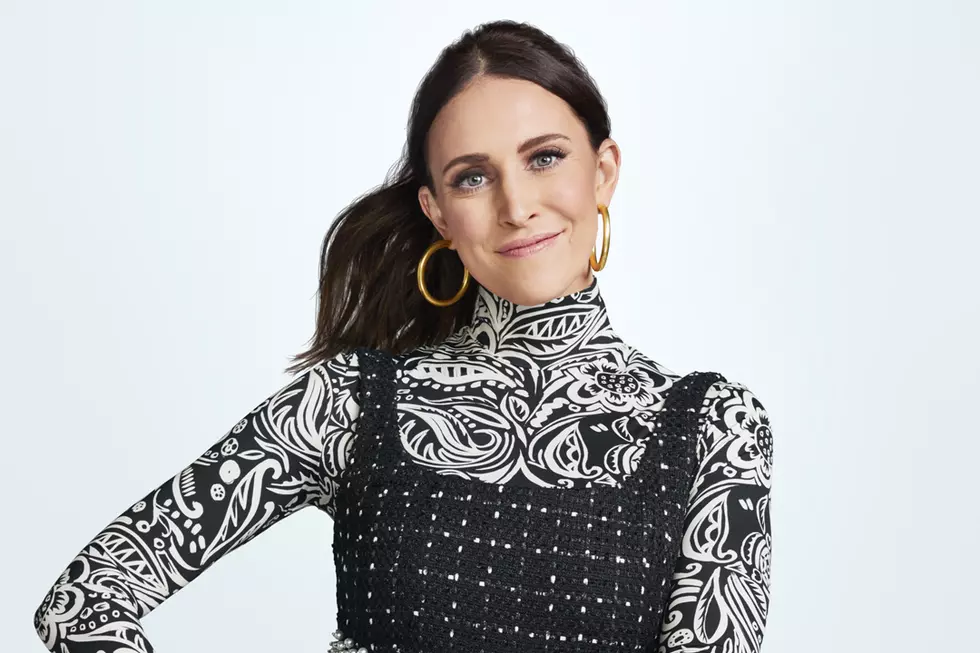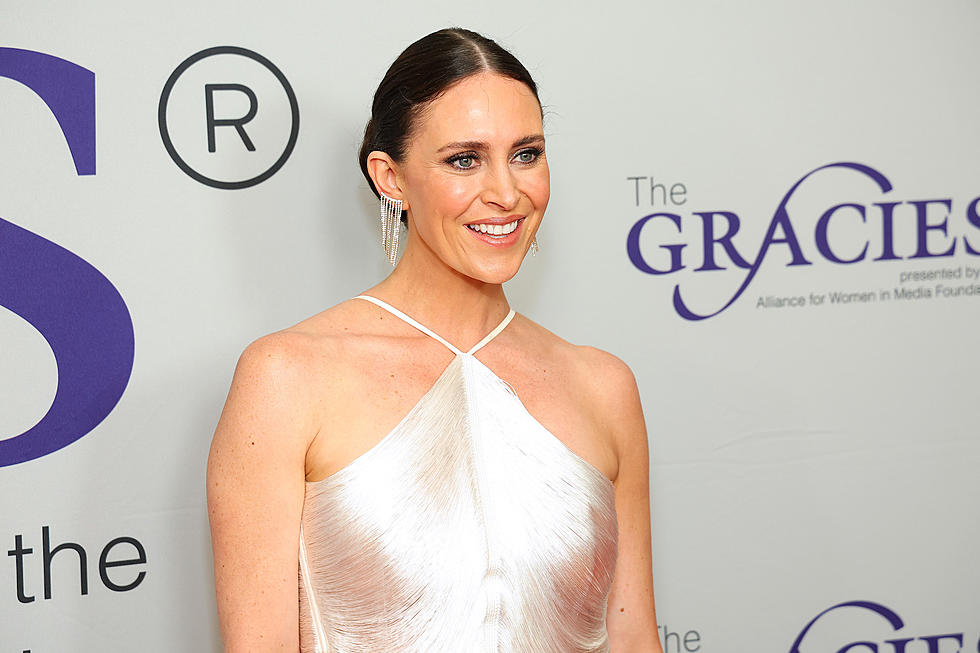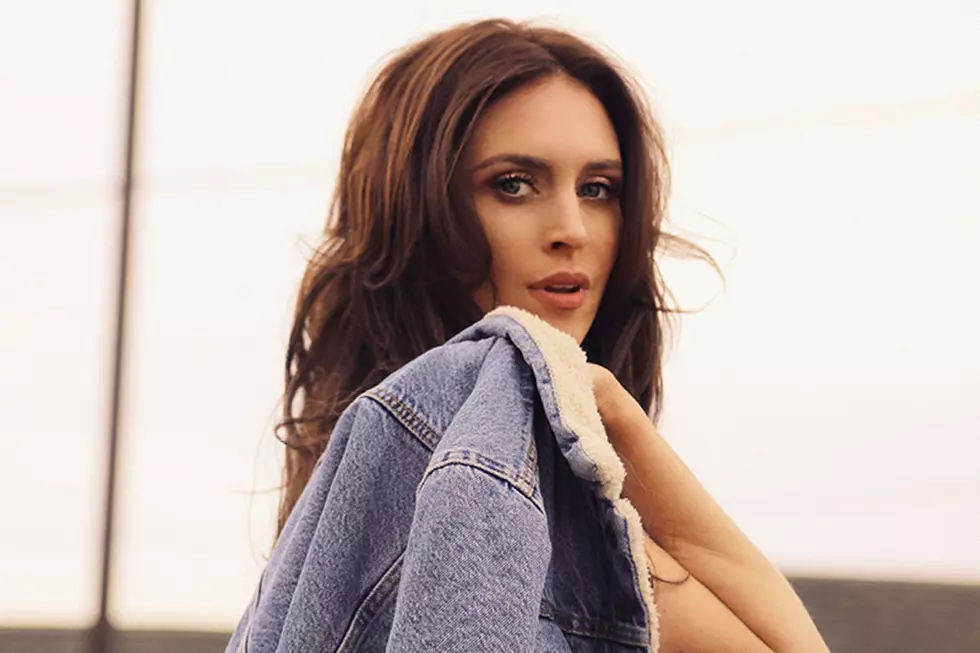
How Kelleigh Bannen’s Insatiable Curiosity Led to a Groundbreaking CMA Broadcast Award Nomination
A conversation with Today's Country Radio host Kelleigh Bannen reveals that the only difference between her and the other Weekly National CMA Broadcast Award nominees is technology. Her one-hour Apple Music program is a "love letter" to country music that's delivered after hours of planning, worrying and self-doubting.
The 3-year-old show is the first streaming show to earn a CMA Broadcast Awards nomination, and Bannen says she was "absolutely, completely shocked" to earn that recognition. Each episode features about 11 minutes of interview edited around the best in new country.
“It’s an hour of music that some people mistake for a podcast if they haven’t experienced it," she explains.
"It's not about having tough conversations as much as it’s — there’s a lot of really interesting conversations to be had. And country music, I think right now especially, is more willing to disagree with itself than ever before. I do think there’s enormous opportunity."
A sampling of the 147 episodes finds guests like Kelsea Ballerini, Kane Brown, Keith Urban, Lukes Combs and Bryan and Carrie Underwood. It's a home for A-listers, which ratchets up Bannen's anxiety, especially if she knows her guest isn't doing much media elsewhere.
"I feel like it’s a huge honor," she shares. "I put a lot of pressure on myself but I also think of my gig as artist relations. I need Carrie to have an amazing experience because I want her to feel passionate about working with Apple … because that is how I signal my respect for them is I have given their project a lot of my time."
A decade ago, Bannen was signed to UMG Nashville and released a pair of charting radio singles. Since then, the Nashville native has continued to write, record and release new music while pursuing television, podcast and radio hosting opportunities. Her "been there" insight is a valuable asset, but it's not her most valuable asset.
During this interview with Taste of Country, and during her interviews with country music's biggest stars, Bannen shows an impressive ability to summarize complex concepts with concise, personal and accessible observations, anecdotes or questions. She doesn't ramble, nor does it sound like her words are scripted.
“I’m just connecting with another person and music happens to be the reason we’re having the conversation," she explains, illustrating a Nashville songwriter's natural word economy. "I find that so life-giving.”
Three years ago, if someone asked Kelleigh Bannen what her expectations for Today’s Country Radio were, what would she say?
Some things haven’t changed. I am neurotic about preparation for interviews, mostly because I just never wanna let my peers down. I’ve always been sort of obsessed with how I can come at a conversation, not in a loose, “Hey, we’re just chatting" kind of way.
I really thought the most difficult thing to get over in those early days was probably my own nerves about sitting across the table from someone who is an icon. And I think what’s actually the biggest hurdle is the work of figuring out how to connect with them. That’s what I get worked up about (now).
When it comes to interview preparation, are you receptive to others providing you questions?
I’m certainly not the only voice at the table. I like to lead with the music, so I’m going to listen to an album a bunch of times, then we (Bannen and a team of four or five others) get in a room and just sort of throw out ideas, areas to explore, questions that we have. There usually is some prep that comes from the label. Then, depending on how long the artist’s career is, we would do additional prep.
I don’t love people writing questions for me. I might be more successful if I was more open to that (laughs). I know where I’m going to start and I think I know where I’m gonna finish. Then, I neurotically plot a course between those things and we never follow it. But the process for me is to go through the trouble of writing all those out and then never looking at it once we’re in the room.
Early on, did you get FOMO listening to artists talking about their careers?
Yes. I don’t even know if it’s envy as much as it’s ... I can feel my own insecurities pop up for sure. I see myself on the CMA stage as an artist and as a performer. In no way does that mean I’m not overjoyed with a nomination in a broadcast category. But yes, every day I show up and interact with artists, I’m aware that the way I thought my dream was going to play out is different than I originally hoped. The reality now is, how do I even make time to make music? Because this is a full-time job.
The follow-up question to that is now, do you get the same kind of FOMO if you hear an artist do a really good interview with someone else?
Sure! I get the most jealous when someone has a great conversation with someone and I’m aware that I missed what was a really interesting thread. If an artist is going to say no to an interview, I really have very little to do with that. It’s more like when I have the interview and then I feel someone else come at an interview and it’s like “Wow, I feel like that was a better interview than mine.”
Could you get to the point where you shut off being an artist and go 100 percent to being a host, broadcast personality, etc. …?
I think from a practical standpoint, that is where I’m at. But I think my edge is that I have been on most of the stages. I don’t ever want to lose that part of my personality. Whether I’m making music actively or not, I think it’s important that I can connect to artists as an artist. I think that’s what I offer that can be different. I’ve been in those same writing rooms. I’ve faced similar pressure from the label. I’ve had near-misses. I’ve been quaking in my boots on a revered stage. I’ve fallen in front of people … so, I wouldn’t want to lose that.
Nowadays, everyone’s personal beliefs are out there on Twitter and you likely strongly agree with some and don’t with others. You might get the opportunity to interview both sides at some point. How do you keep your personal politics out of a conversation with an artist?
I don’t do this perfectly, but to me, that is all about curiosity. The more in touch with my genuine curiosity and the more I am out of a place of judgement for another person and in a place of curiosity, I think that’s where that it is. I think have to challenge myself to continue to look for places to show up and — it’s not about having tough conversations as much as it’s, there’s a lot of really interesting conversations to be had. And country music, I think right now especially, is more willing to disagree with itself than ever before. I do think there’s enormous opportunity.
*The 2022 CMA Awards are on Nov. 9 on ABC. Broadcast winners were announced on Oct. 10, with the Country Top 40 With Fritz winning the Weekly National category.
See the Most Played Country Song from the Year You Were Born
More From Taste of Country







![Kelleigh Bannen Celebrates ‘Deluxe’ Love With Fiery Performance [Watch]](http://townsquare.media/site/204/files/2019/07/kelleigh-bannen-deluxe-live-performance.jpg?w=980&q=75)

